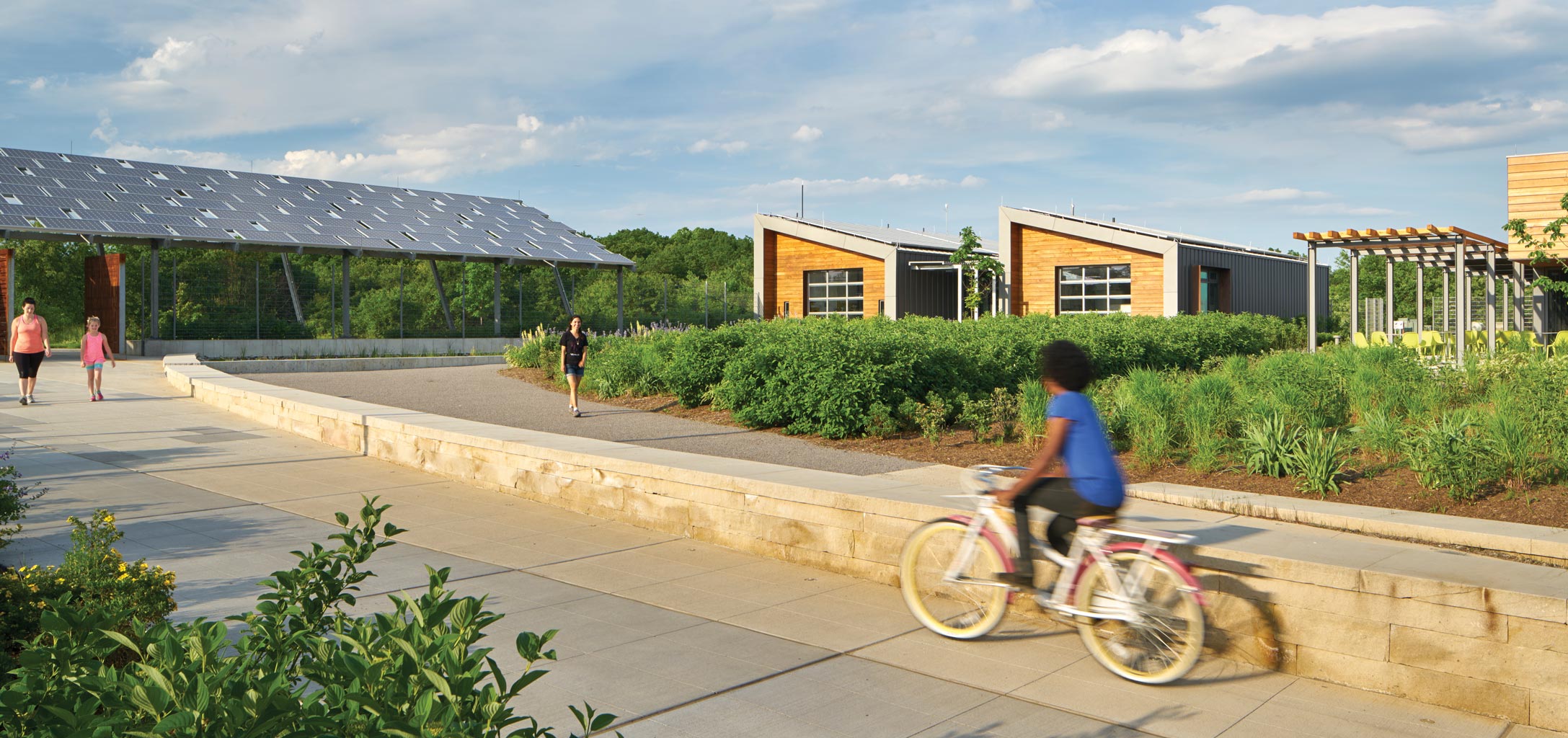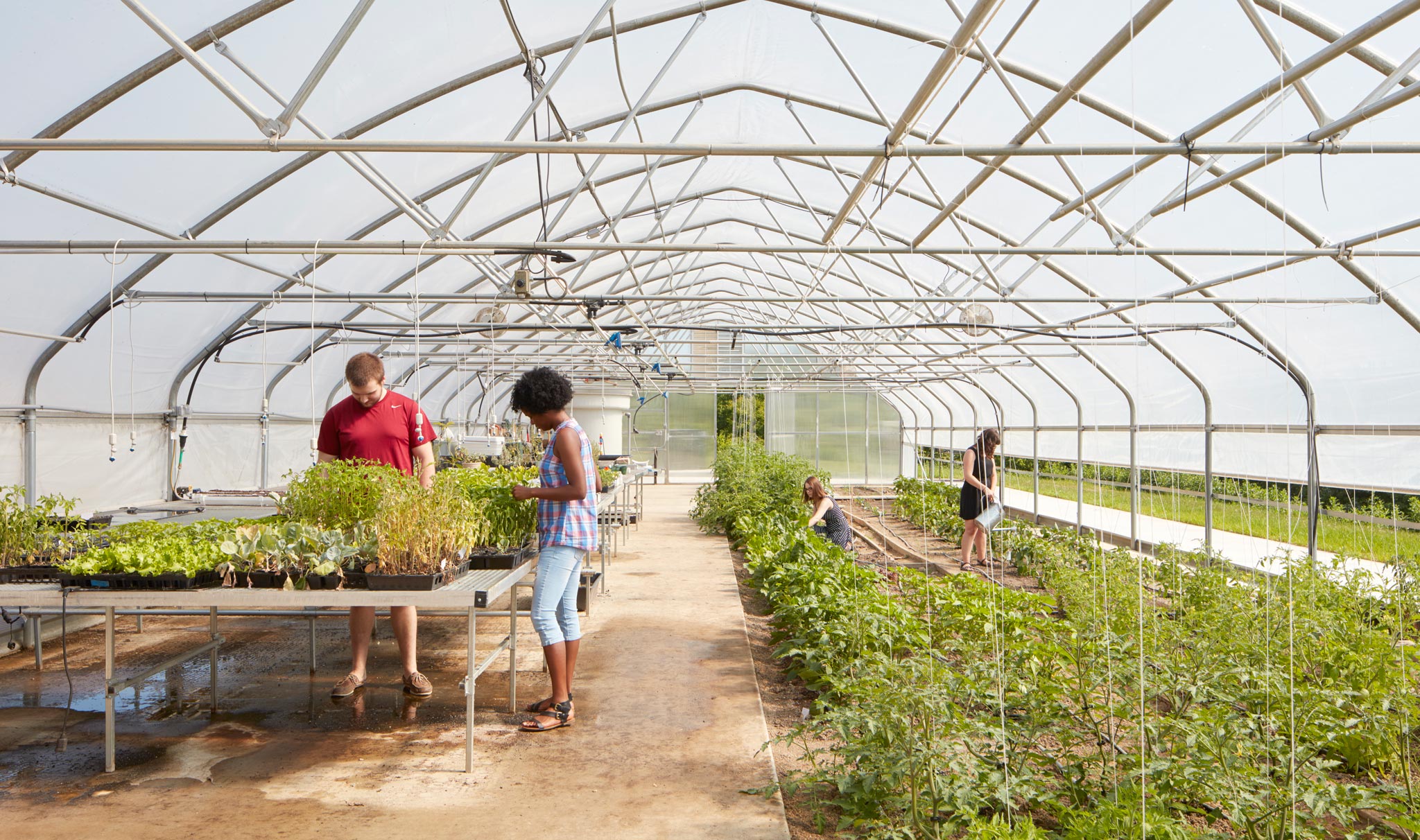Chatham University Changes the Face of Sustainability
These days, the words “Chatham University" are starting to become synonymous with “sustainability.” After the institute was gifted 388 acres in Richland Township in 2008, it sought to create a campus that was self-sustaining in every way.
And it did. Eden Hall Campus is the world’s first fully sustainable campus in higher education, aiming for a goal of zero carbon emissions, managing all waste and storm water on-site, and producing more energy than it consumes, among other things. It’s remarkable advancements caught the eyes of The Princeton Review in 2015, who ranked it as one of the Top 50 Green Colleges, and Sierra Magazine, who dubbed it one of the Top “Cool Schools.”
“Yes, we have these amazing buildings with net zero energy that are built to platinum LEED certification, but it’s more about the programs that set us apart,” says Alice Julier, director of Chatham University’s Food Studies Program.
Taught through the Falk School of Sustainability & Environment on Eden Hall Campus, the Master of Arts in Food Studies and the Master of Arts in Food Studies-Master of Business Administration Dual Degree are available for graduate and master students — and, next year, undergraduate students — who are interested in everything from agriculture and food production, to culinary cultures and consumption across the globe.
“We used to say, ‘We’re not training farmers and chefs,’ but that’s not true. We have a lot of people who graduate and move on to doing that,” Julier explains. “But it touches everything. It’s like a bootcamp for changing the food system.”

While developing and perfecting the program, Julier knew she wanted to take advantage of the technologies and resources available locally. From the kitchen they treat more like a lab to the demonstration gardens where different theories in nutrition, science, and culture are tested, the students get hands-on experience in every realm of the food world. This even includes classes at Jamison Farm, one of the oldest grass-fed lamb farms in the area, where pasture grazing, butchering, and meat policies are all studied. And, with the new MBA joint program, a look at local food businesses, sourcing, improving food systems, and creating new ones also make the curriculum.
“We train them pretty broadly and think about sustainability as a social issue,” Julier says. “It’s a process of evaluating our choices, options, and resources, and determining how we can use them in a way to better the species and the planet.”
As she works to ensure students have access to the best tools and information necessary to provide a solid education, Julier’s end goal is to have Chatham graduates provide similar resources and support to the City of Pittsburgh and beyond. To have the institution serve as a source of knowledge and innovation for others beyond the campus would help spread the school’s cutting-edge advancements in sustainability and conscious food studies, and benefit countless people.
And it’s already beginning.
“I think people would be surprised to know how much influence we’ve had over the food system in Pittsburgh in the last seven years,” Julier says. “We don’t like making a lot of noise about it, but when I go to work with a nonprofit or a business, or meet with the mayor or the food policy council, I see people that we’ve helped train. And now they’re doing amazing things.” Chatham University, chatham.edu. — Rachel Jones




